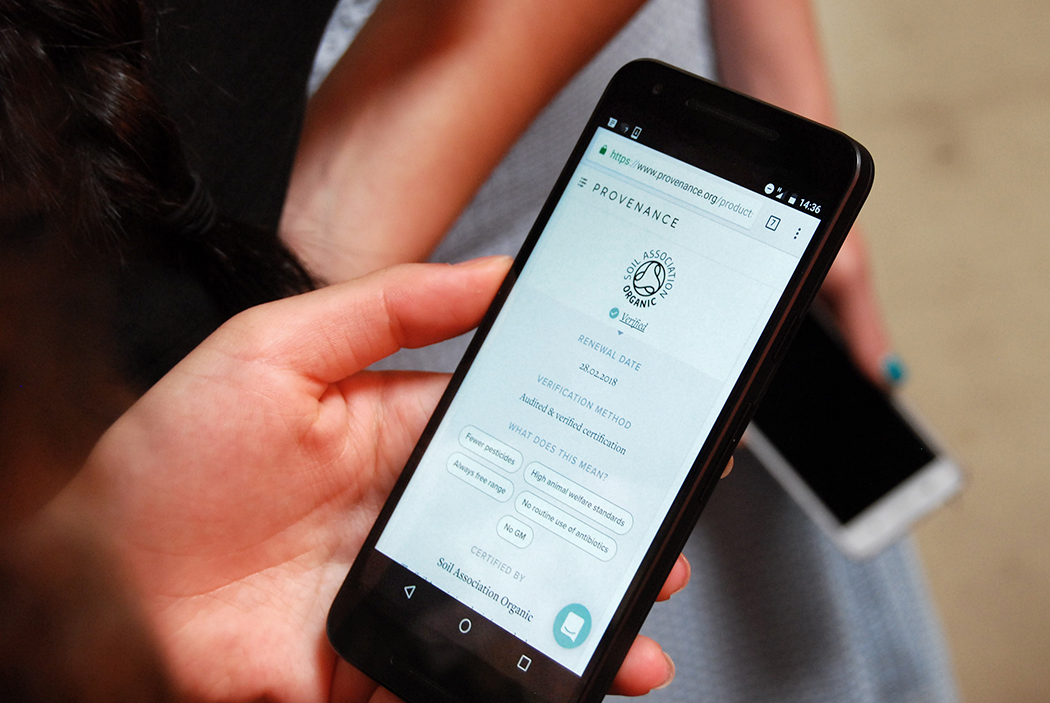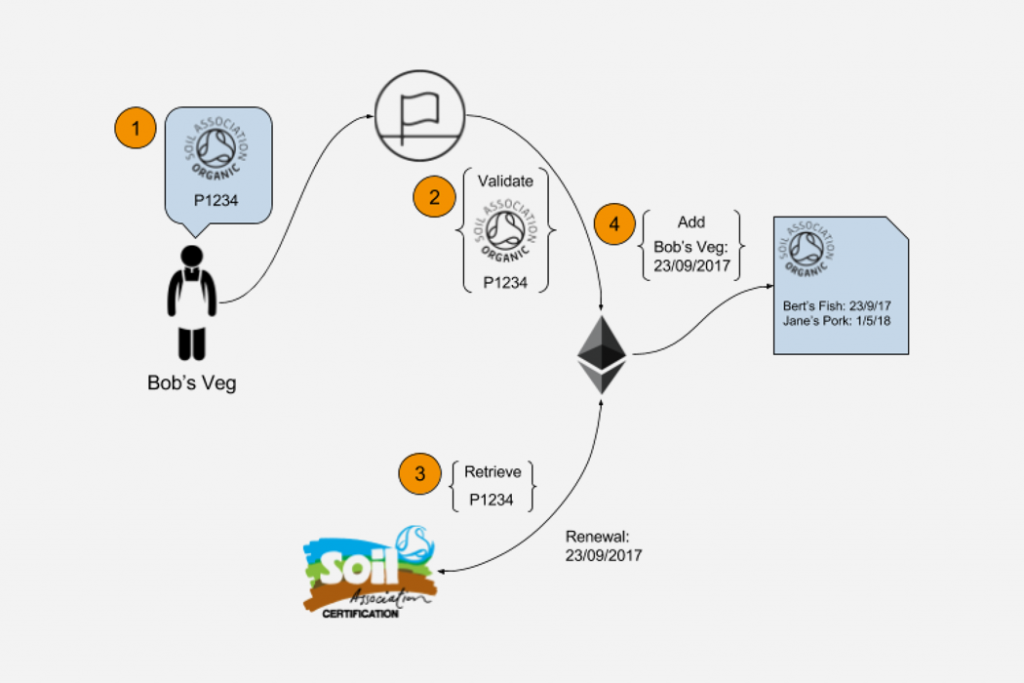
A shopper uses Provenance to view organic certification data.
Whether online or in-store, how can shoppers trust and interact with certification marks? What are the technicalities behind using Provenance technology to digitise certification?Supporting the work of sustainability standards bodiesAt Provenance, we enable shoppers to check the validity of certifications, understand their value, educate and use digital content to become advocates of standards. We work with many voluntary, usually third party-assessed, sustainability standards and certification bodies that exist to demonstrate the efforts of organisations against environmental, social, ethical and food safety issues.Challenges faced by certification todayMany certification bodies publish their certification data in the form of license checkers. These checkers allow shoppers to confirm the validity of a brand’s certification. While useful, these are often inaccessible and hidden away from shoppers, and consequently play little to no part in our purchasing decisions.Provenance accesses this data to programmatically store license validity information on the blockchain, and make it visible to shoppers at the point of sale We partnered with the Soil Association, the largest organic certifier in the UK, and connected their licence checker to Provenance.

A smart contract verifies the certification on the blockchain with data fetched directly from the certifying body.
How Provenance stores certification data on the blockchain
Preserving trust on the blockchainOnce the certification is on the blockchain, we can be sure that it can’t be changed. However, we need to make sure it reflects the Soil Association certification in the first place, even with Provenance and Oraclize acting as third parties.Using this setup, we can show that:

Designing certification data on Provenance.
A digital future for all types of certificationBeyond the Soil Association certification mark, our system integrates with all other types of awards and certifications, with the blockchain acting as a common layer for sharing trustworthy certification data. With Provenance, what used to be a static JPEG backed by an unaccessible silo becomes an interactive and interoperable digital marque. Our service enables certifications and standards bodies innovate their offering, all while providing shoppers greater insight and trust in certification marks and the brands that carry them.